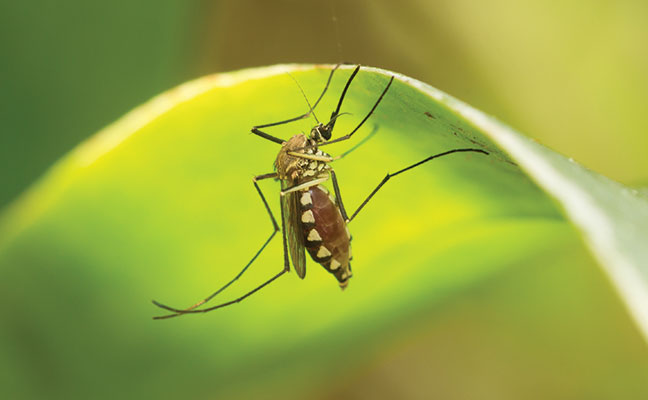A University of California, Riverside scientist is leading a team of researchers that will receive up to $14.9 million from the U.S. Defense Advanced Research Projects Agency (DARPA) to be part of the “Safe Genes” program to study innovative genetic techniques to control disease-causing mosquitoes.
“Termites have all these microbes living in their gut, like humans do. These microbes are able to help fight off a known pathogenic fungus that can infect termites and eliminate them,” says Dr. Michael Scharf, an associate professor and the O. Wayne Rollins/Orkin chair in Purdue’s department of entomology, which developed the technology.

Aedes aegypti can spread yellow fever, dengue fever, chikungunya, Zika and other diseases.
Photo: ©iStock.com/frank600
With the contract, believed to be the largest ever received by a UC Riverside researcher, Dr. Omar Akbari, an assistant professor of entomology, and his team will focus on a technique known as “gene drive.” It has the potential to spread desirable genes in wild populations and suppress harmful organisms.
“Our primary goal is to safely test and innovate these technologies strictly in the laboratory,” says Dr. Akbari, who led the collaboration of six UC campuses. “We hope our efforts will broaden our fundamental understanding of the potency of gene drives, to help better understand how they may behave in the natural environment if ever released.”
The researchers want to understand the potential risks and benefits of using gene drives to control mosquitoes that carry diseases including Zika, chikungunya, dengue and yellow fever.
Leave A Comment